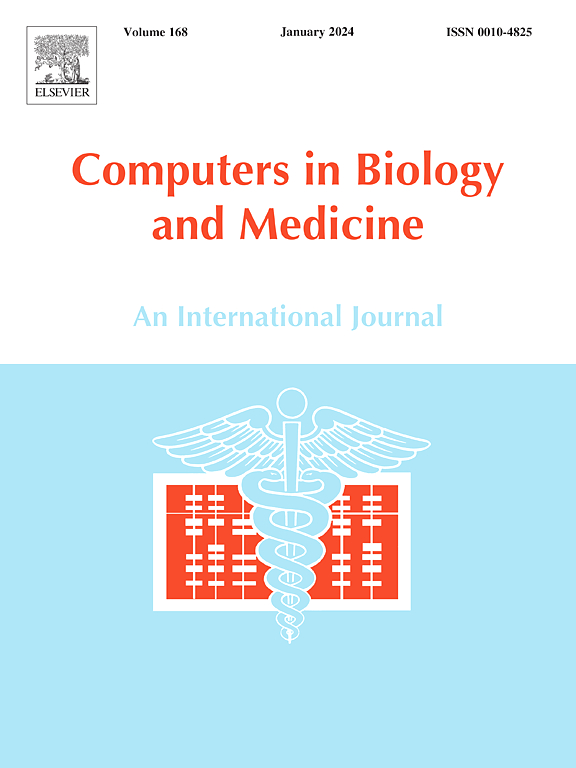Advancing breast cancer prediction using blockchain-secured hybrid genetic algorithm
IF 7
2区 医学
Q1 BIOLOGY
引用次数: 0
Abstract
Feature selection using evolutionary algorithms-a well-liked technique for choosing pertinent characteristics in huge datasets is explored. In machine learning, feature selection (FS) is a key phase that helps to boost model efficiency, decrease overfitting, and improve model accuracy. Breast cancer (BC) prediction algorithms can be improved to attain more accuracy while protecting patient privacy and maintaining data integrity by utilizing blockchain. The suggested model incorporates the system with the blockchain method for smart contracts, and it evaluates and compares various learning algorithms and classifiers for the identification of breast cancer. Many different machine learning algorithm techniques were tested on the Wisconsin Diagnosis Breast Cancer data set. The accuracy obtained in different classifier such as XGBoost, AdaBoost, Logistic Regression, Linear SVM, Random Forest, KNN, Gradient Boosting, Radial SVM and Decision tree are 99%, 99.06%, 99.35%, 99.47%, 98.88%, 96.84%, 98.71%, 96.31% and 96.43%. The accuracy of each algorithm in determining whether a tumor was benign or malignant was demonstrated to be higher than 96.31%. The combination of GA and Linear SVM achieved the highest accuracy of 99.47%. In general, though, XGBoost outperforms the competition whether you use GA or not. Because of this, supervised machine learning techniques will be extremely useful in cancer research, especially for purposes of early diagnosis and prognosis. To solve the hazards of data breaches, unauthorized access, and tampering are present with traditional centralized systems, we have developed a safe and impenetrable system that protects patient data throughout the prediction process by integrating blockchain with machine learning.
使用区块链安全混合遗传算法推进乳腺癌预测
特征选择使用进化算法-一个很受欢迎的技术选择相关的特征在巨大的数据集进行了探索。在机器学习中,特征选择(FS)是有助于提高模型效率、减少过拟合和提高模型准确性的关键阶段。利用区块链可以改进乳腺癌(BC)预测算法,在保护患者隐私和保持数据完整性的同时获得更高的准确性。该模型将该系统与智能合约的区块链方法结合在一起,并对用于识别乳腺癌的各种学习算法和分类器进行评估和比较。在威斯康星诊断乳腺癌数据集上测试了许多不同的机器学习算法技术。在XGBoost、AdaBoost、Logistic回归、线性支持向量机、随机森林、KNN、梯度增强、径向支持向量机和决策树等不同分类器下得到的准确率分别为99%、99.06%、99.35%、99.47%、98.88%、96.84%、98.71%、96.31%和96.43%。各算法判断肿瘤良恶性的准确率均高于96.31%。遗传算法与线性支持向量机的组合准确率最高,达到99.47%。不过,总的来说,无论您是否使用GA, XGBoost的性能都优于竞争对手。正因为如此,监督式机器学习技术将在癌症研究中非常有用,尤其是在早期诊断和预后方面。为了解决传统集中式系统中存在的数据泄露、未经授权访问和篡改的危险,我们开发了一种安全且不可渗透的系统,通过将区块链与机器学习相结合,在整个预测过程中保护患者数据。
本文章由计算机程序翻译,如有差异,请以英文原文为准。
求助全文
约1分钟内获得全文
求助全文
来源期刊

Computers in biology and medicine
工程技术-工程:生物医学
CiteScore
11.70
自引率
10.40%
发文量
1086
审稿时长
74 days
期刊介绍:
Computers in Biology and Medicine is an international forum for sharing groundbreaking advancements in the use of computers in bioscience and medicine. This journal serves as a medium for communicating essential research, instruction, ideas, and information regarding the rapidly evolving field of computer applications in these domains. By encouraging the exchange of knowledge, we aim to facilitate progress and innovation in the utilization of computers in biology and medicine.
 求助内容:
求助内容: 应助结果提醒方式:
应助结果提醒方式:


